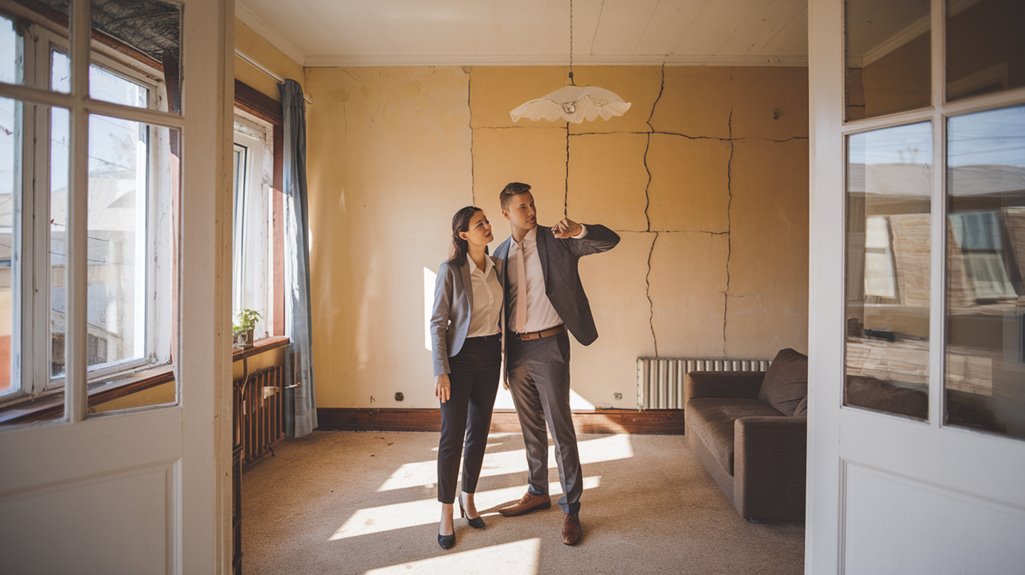Finding a cheap home might look good at first, but you need to think hard about what it will cost you in the long run. Old, low-cost homes often break down. You might need to fix things like bad floors and old wires. These fixes can cost more than what you saved on the home.
Think about where the house is. If it's far from your job, you'll spend more on gas and time in traffic. If the house has old windows or poor walls, you'll pay more to heat and cool it.
Look at the area around the house too. Are there good schools? Are more people moving in? Will the home be worth more later? All these things matter.
Take your time to check everything before you buy. A cheap home isn't always the best deal for your money.
Ready to start building equity in your own Michigan home? Get your personalized home loan quote today.
Hidden Repair Costs
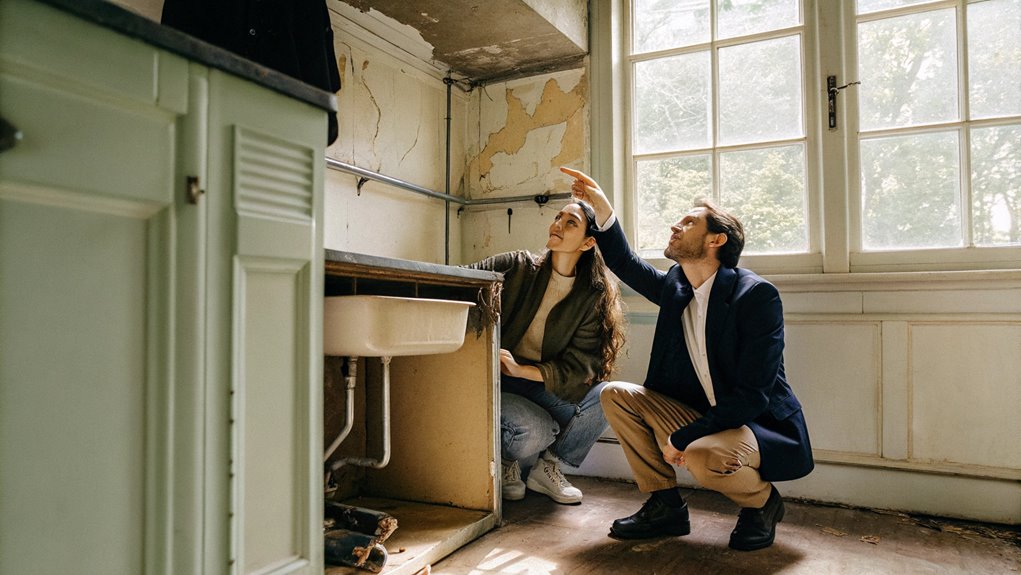
When you see a cheap house, it can be hard to resist. But watch out! Problems you can't see might cost you lots of money to fix. You need to check big things like the wires, pipes, base, and roof. These fixes can cost many thousands of dollars.
Small problems can turn into big ones too. A crack in a window might mean the wood around it's bad. Water marks on walls might mean there's lots of mold hiding.
You may also need to fix old parts of the house to meet new rules, or banks won't give you money to buy it.
Ask a house checker to look at everything before you buy. Get repair costs from good workers too. This helps you know if the house is worth buying or not.
Michigan residents, unlock the door to your new home. Request your home loan quote from Treeside Financial today.
Location and Commute Time
Living far away from work can cost you more than you think.
When you buy a cheaper house that's far away, you spend a lot on gas, car repairs, and tolls. You might feel tired and stressed from sitting in traffic every day.
This can make it hard to do your best work and spend quality time with your family.
Before you buy a house far from work, think about both the money and time you'll spend driving back and forth.
Hidden Commute Costs
Living far from work costs more money than you might think. Every day, you spend money on gas, fixing your car, parking, and tolls. These costs add up to a lot of money each year.
Your car also gets older faster when you drive more miles. You need to change the oil more often and buy new tires sooner.
If you take the bus or train, you need to buy tickets or passes. Even sharing rides with friends costs money.
Many people find out that a cheap house far away ends up costing more than an expensive house near work.
Talk to your real estate agent about all these costs before you buy a home.
Traffic Stress Impacts Life
Think about your daily drive to work. Getting stuck in traffic is no fun. It steals your time and makes you tired. You miss out on fun things at home. You feel mad when other cars cut you off or drive too slow.
Life could be better with a shorter drive to work. You could drink your coffee without rushing. You could eat breakfast with your kids. You could even work out before work!
When you get home early, you can play with your kids or do things you love.
Some people move far from work to save money on their home. But sitting in traffic each day can make you sad and stressed. Pick a home that helps you live the life you want.
Future Resale Value
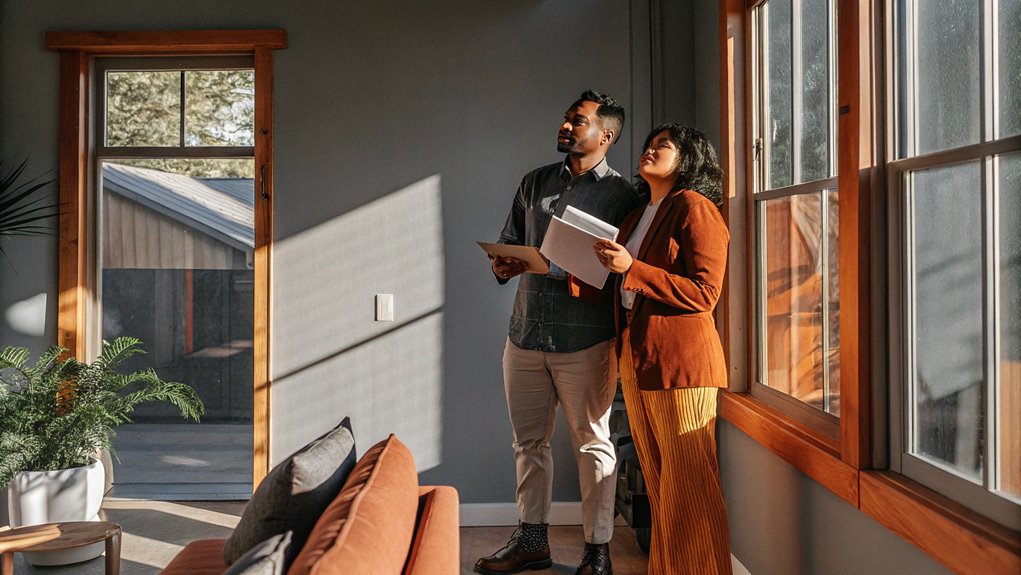
Buying a home that will be worth more later is really important when looking at cheaper houses. Think about whether the low price today will help you make money when you want to sell it later. A good home value comes from being in the right spot, having new things built nearby, and how many people want to buy homes in the area.
When your home grows in value:
- You feel good knowing you made a smart choice
- Your street stays nice and safe
- You can be proud of picking a good home
- You can sell if you need to move
- You see your home become worth more as time goes by
Talk to a home expert who knows which areas are getting better. They can help you find homes that will be worth more money later.
Space and Layout Considerations
Think about how you and your family will move around the home each day. Is it easy to walk from the kitchen to the living room? Can you get to the bedrooms without trouble?
Look at each room and ask if it fits your daily life. If rooms feel too small or are in the wrong place, you might need to spend money to fix them.
Also think about what you might need later. Maybe you'll want a room to work from home, or space for more kids. As you get older, you may need wider doors or fewer stairs.
Plan for these things now.
Room Flow and Function
A good home layout helps you live better every day. Think about how you and your loved ones will use each room, not just what it costs.
Your kitchen needs to let you cook while talking to family in nearby rooms. Your bedrooms should be quiet spots away from noisy areas. When you come inside, you want an easy path from the front door to the rest of the house.
Put bathrooms where they make sense for your family and guests. Living rooms should feel open and welcoming so people want to spend time there.
Walk through each room and picture your daily life. A home that fits how you live is worth more than a cheaper house that feels awkward to move around in.
Future Space Planning
Your home needs to grow with you as life changes. Think about what you might need in the years ahead. Will you have kids? Will you work from home? Will your parents need to live with you one day?
It helps to pick a home that can change with you.
Simple Life Changes and What You Need:
- New Family: Kids need bedrooms and places to play
- Work Life: You may want a quiet room for work
- Later Years: You might want less space or room for help
A room can be many things over time. What starts as a guest room can become a baby room. Later, it can be your work space or a fun hobby room.
When you buy a home that can change with you, you save money. You won't have to move when life throws you a curve ball.
Neighborhood Growth Potential
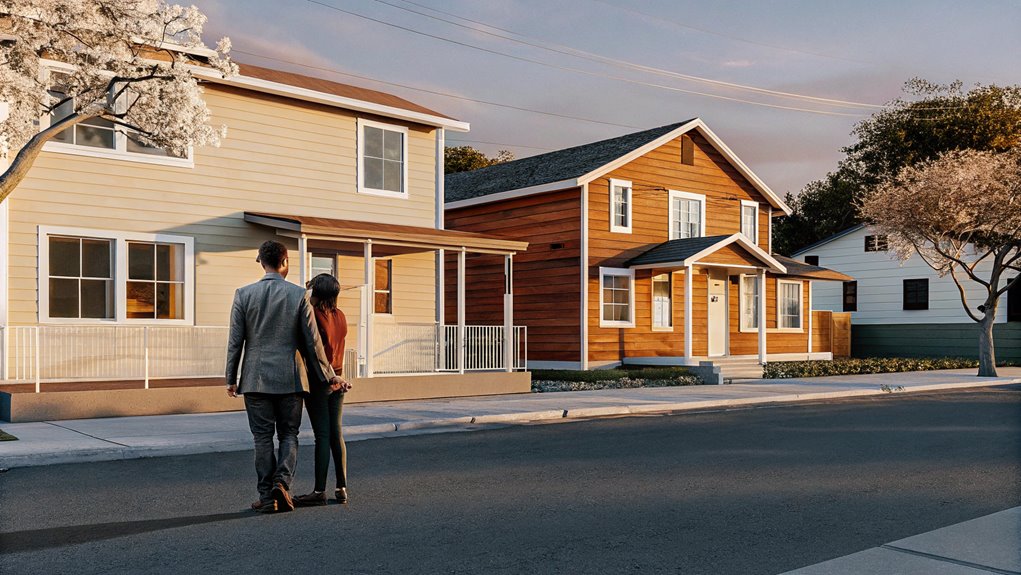
Looking at where you might buy a home? Check out how the area is growing first!
Think about what's coming to the area. Are new stores opening? Are better roads being built? These changes can make your home worth more money later.
Look for these good signs:
- New shops and stores make life easier and help home prices go up
- Better schools bring more families to live nearby
- Fixed roads and sidewalks show the city cares about your area
- If homes cost more in areas close by, your area might be next
- New parks and fun places make living there better
Remember: When a area grows, it's good for both living there and making money on your home.
Energy Efficiency Factors
Your home's costs go beyond its price tag. Think about how much you'll spend on energy each month.
If your walls, windows, and doors let hot or cold air leak out, you'll pay more to stay comfy. Old heating and cooling units use lots of power and might break down soon.
Plus, you'll have to fix or buy new ones, which costs even more money.
Poor Insulation Costs More
Bad Home Insulation Will Cost You Money
When you buy a home, watch out for poor insulation. Bad insulation lets warm air leak out in winter and hot air come in during summer. This means your heater and air conditioner have to work extra hard. You end up paying much more on your power bills each month.
Think about what happens in a poorly insulated home:
- Cold drafts make you feel chilly
- Your family shivers in winter and sweats in summer
- You waste money on high energy bills
- Your home sells for less later
- You never feel truly cozy in your own house
Before you buy a home, check its insulation. Good insulation keeps you comfy and saves you money. It's worth taking time to find a well-insulated home that will keep your family warm in winter and cool in summer.
Outdated HVAC Systems Impact
Your old heating and cooling system can cost you lots of money in your home. You'll have to pay more each month for power. You'll also need to fix it often.
Old systems only work at about 60-70% of what they should do. New ones can work up to 95% better.
It costs $5,000 to $12,000 to put in a new system. When you look at houses to buy, check how old the heating and cooling system is. Also ask how well it was taken care of.
If it's more than 15 years old, you might need to get a new one soon. Watch out for rooms that feel too hot or cold. Listen for weird sounds. Look for too much dust.
These mean your system isn't working well and is wasting your money. Your comfort and bills depend on how well your heating and cooling work.
Property Tax Implications
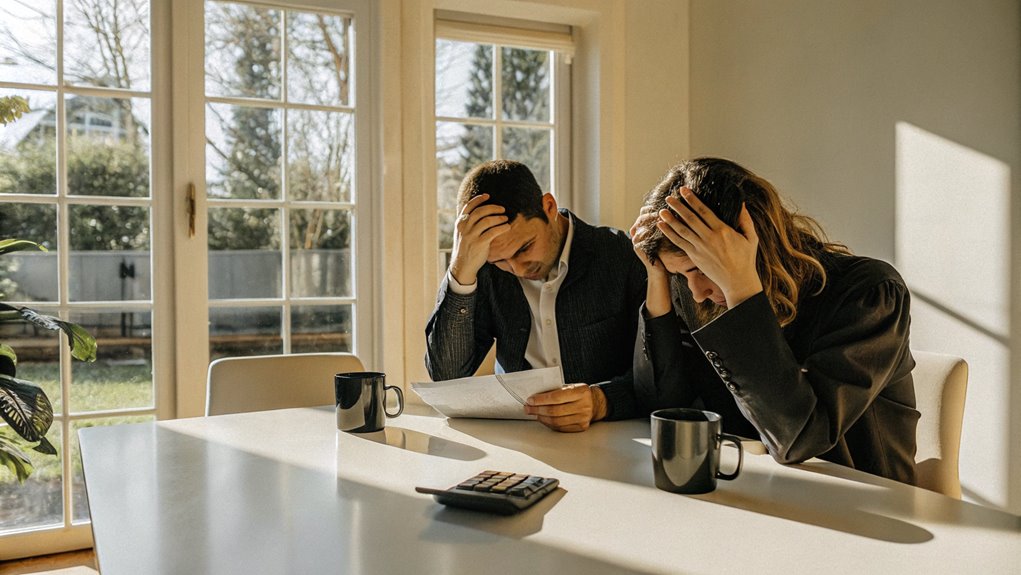
When you buy a home, taxes are a big part of what you'll pay each month. Just like your house payment, you must pay taxes too. Different areas have different tax rates. A home that seems cheap might cost more because of high taxes.
Think about:
- Your tax bill might shock you if you don't plan ahead
- Schools with low taxes mightn't have all the programs you want
- Planning for taxes helps you sleep better at night
- High taxes can make it hard to buy other things you need
- Your taxes help pay for parks, roads, and services in your area
Look at old tax bills for the house you want to buy. Ask about future tax changes. This helps you pick a home you can really afford.
Insurance Rate Variations
Your insurance costs will change based on where your home is.
Living near water or in areas with more crime can make you pay more.
Old houses also cost more to insure than new ones.
When you buy a house, look at these costs first.
This will help you know the real price of owning your home.
Location Affects Premium Rates
Where you live changes how much you pay for home insurance. Think of it like this: If your home is in a place where bad things happen more often, you'll need to pay more to protect it.
Let me show you what can make your insurance cost more:
- A house by the ocean needs extra money to protect it from big storms.
- If your home sits where water often floods, you need special flood coverage.
- Houses in areas where crime happens a lot cost more to insure.
- Living close to fire trucks and water helps you save money.
- Places that get lots of strong storms cost more to insure.
Before you pick your new home, look at how much insurance costs in each area you like. The price difference might surprise you and change how much money you can spend each month.
Building Age Impacts Coverage
Your house's age matters a lot when getting insurance.
Old houses often cost more to insure than new ones. This is because old houses can have old wires and pipes that might break.
Don't pick an old house just because it costs less to buy. You might end up paying more money later for insurance and fixes.
New houses built in the last 20 years often have lower insurance costs. They've safer parts like new wires and pipes that work better. Insurance companies like these newer, safer things in houses.
School District Quality
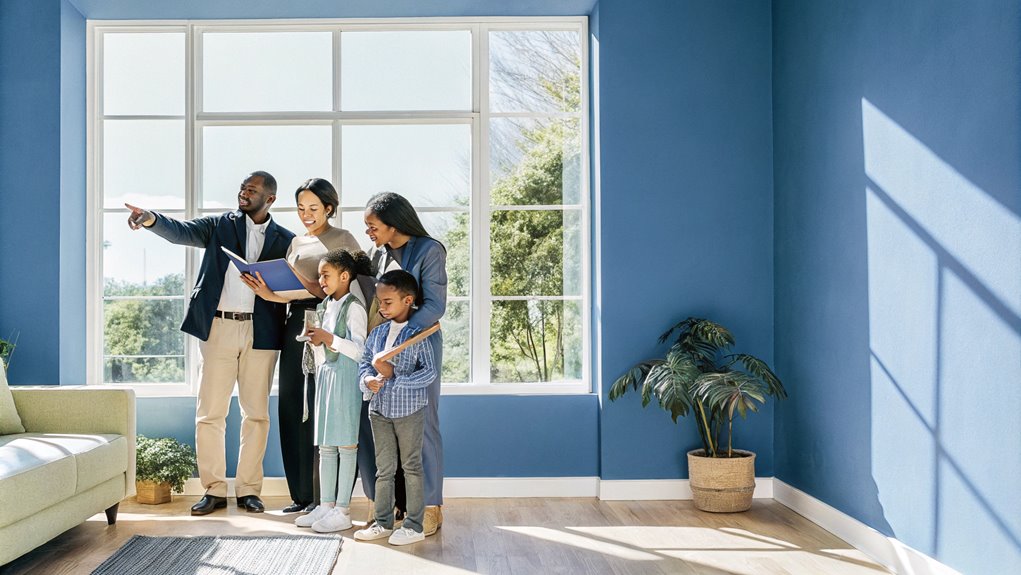
Looking at good schools helps you find a home that will grow in value.
Even if you don't have kids, homes near great schools sell for more money. When you look for a house, take time to learn about the local schools.
Living near good schools gives you:
- A better education for your kids
- Neighbors who care about learning
- A safer place to live
- A home that keeps its value
- Friends who want their kids to do well
Visit the schools in person. Talk to parents.
Watch how the kids learn and play. See what sports and clubs they have. This will help you pick the right place to live.
Safety and Crime Statistics
Living in a safe place is very important when picking your new home. A cheap house may look good, but first check if the area is safe. You can find out about safety by talking to the local police or looking at safety maps online.
Look at how safe the area has been over time, not just now. This helps you see if crime is going up or down. Check both the number of violent acts and stolen items in the area. See how these numbers match up with other parts of your city.
Walk around the area in the morning, noon, and night. Talk to people who live there to learn how safe they feel.
Also look up if any bad people live nearby. Your family's safety matters more than saving money on a house.
Home Improvement Restrictions
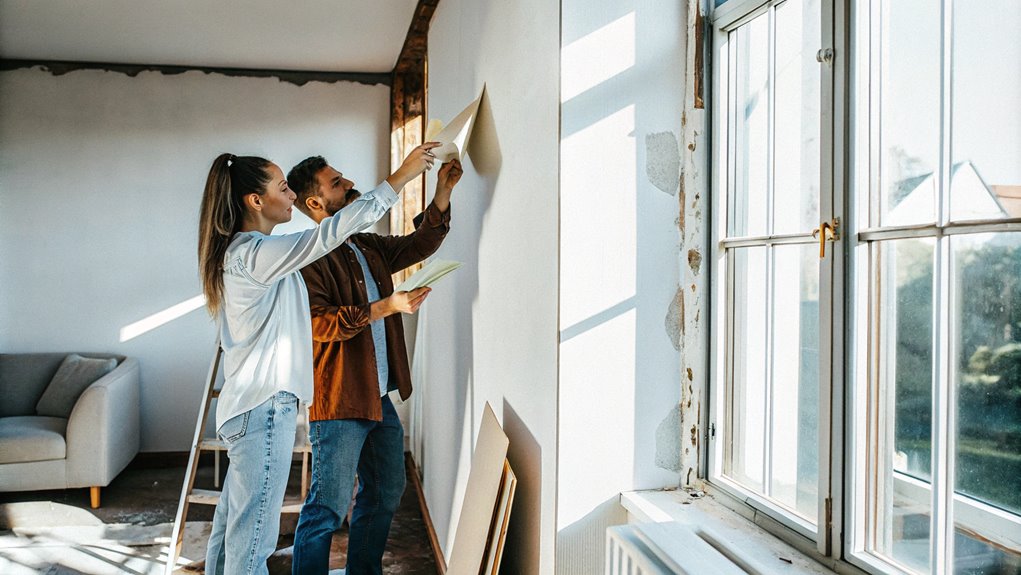
When you buy a cheaper home, you may face rules about what you can change. This is true if you live in an old neighborhood or in a community with strict rules.
These rules can stop you from making your home just the way you want it. They can also change how much your home is worth later.
Think about these things before you buy:
- You mightn't get to paint your house the color you love
- You may not be able to add another floor to your home
- You could be told "no" when trying to build a workshop
- Old homes may not let you put in new windows
- You mightn't be able to put up a sign for your home business
Know what you can and can't do before you buy. This way, you won't feel sad later and your money will be well spent.
Local Market Trends
Our homes and neighbors matter a lot. Before you buy a less costly house, take time to learn about what's going on in the area.
Look at how other house prices are going up or down. See how long it takes homes to sell. Check what nearby houses sold for.
Watch for new things being built near you. A new school or store can make the area better. Good jobs and new shops in town help keep home prices strong.
But be careful if you see lots of empty houses or bank-owned homes. This could mean the area is having hard times.
Talk to someone who knows the area well, like a home seller. They can tell you if the area is getting better or worse.
Infrastructure and Utilities
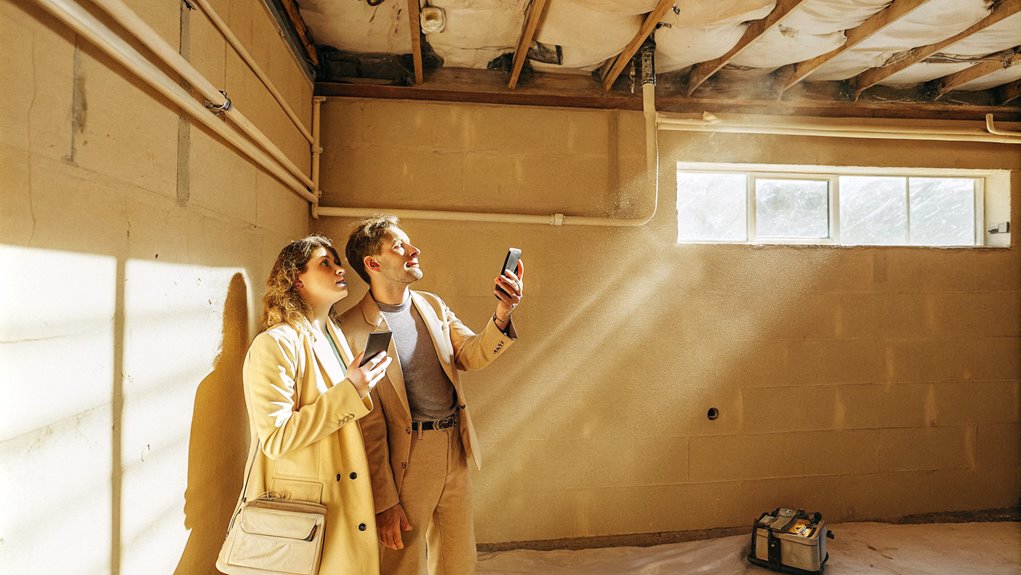
When you buy a cheaper home, be ready to pay more for fixing things and monthly bills. Old homes often have old parts that cost a lot to run and fix.
Think about:
- A cold house in winter when the heat stops working
- Water pipes that break and leak often
- Lights that go out when you use too many things at once
- Big power bills because cold air gets in
- No fast internet where you live
Get someone who knows about houses to check these things first.
Ask about what it costs for power, water, and heat in that area.
This way, you won't be surprised by big bills later. You'll know what needs fixing before you buy the house.
Renovation Potential
If you want to make money on a cheap home that needs work, you need to think hard about what you'll fix. Simple jobs like painting walls or putting in new lights are easy to do yourself. But big problems like bad walls or old wiring cost a lot to fix.
Talk to workers who can fix the house before you buy it. Ask how much it will cost. Then add extra money just in case you find more problems. Check what your city allows you to do. Look at other homes nearby to see what fits in.
Some fixes give you more money back than others. New kitchens and bathrooms often help the most.
If you like to work with your hands and can wait, a home that needs work can make you money. Just don't get too excited about the low price before you know what you need to fix.
Community Amenities

Living in a good area matters just as much as finding a cheap home to fix up. Look at what's nearby before you buy. The right location makes life better and helps your home keep its value.
Think about:
- Good schools for your kids to learn and grow
- Fun parks where you can meet neighbors and play
- Stores and places to eat close to home
- Doctors and hospitals when you need help
- Buses and trains to get around easily
Pick a place that fits how you live. A home near useful things is often better than a cheap home far from everything you need.

